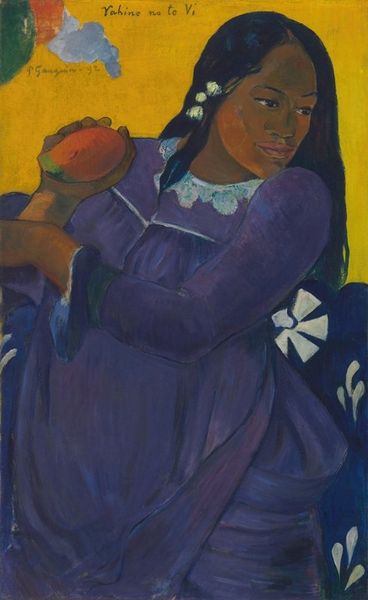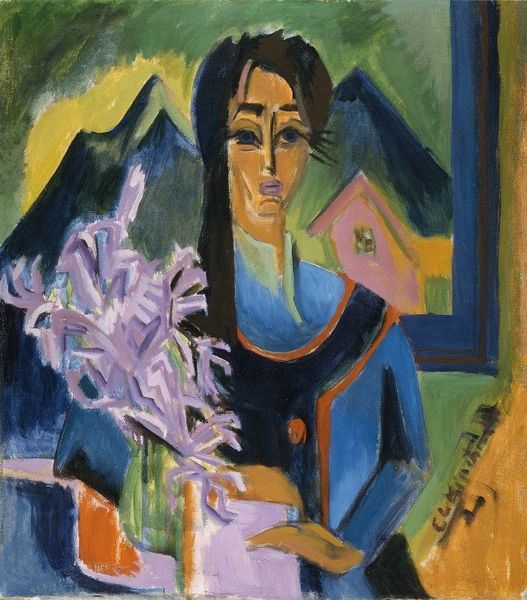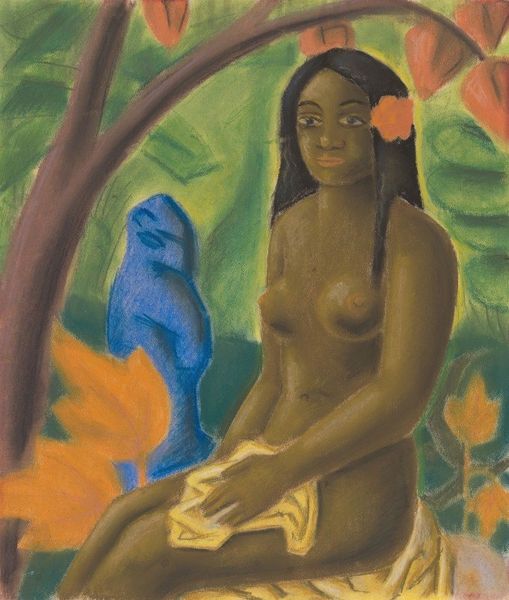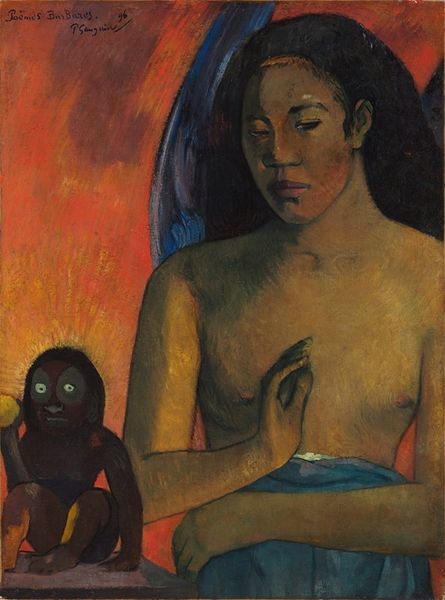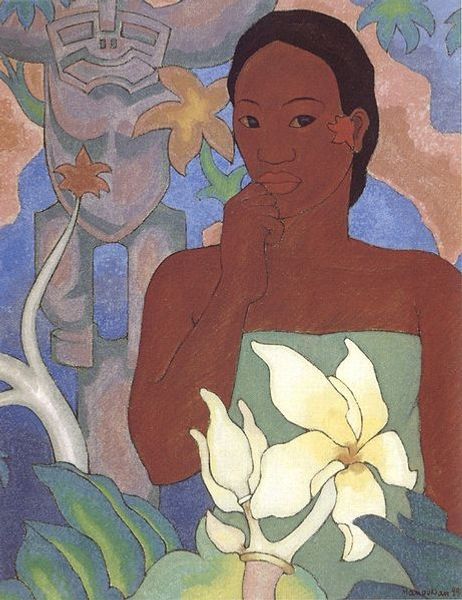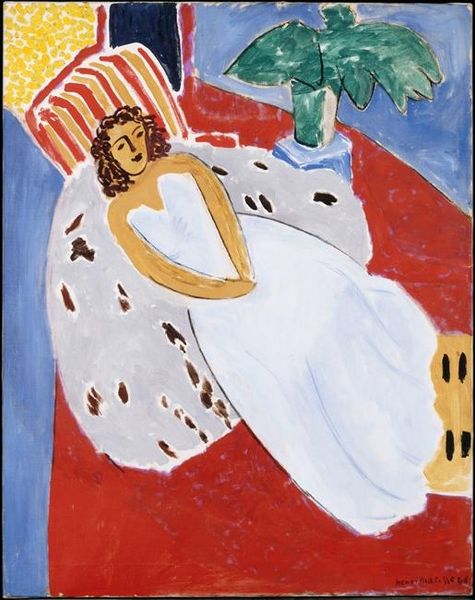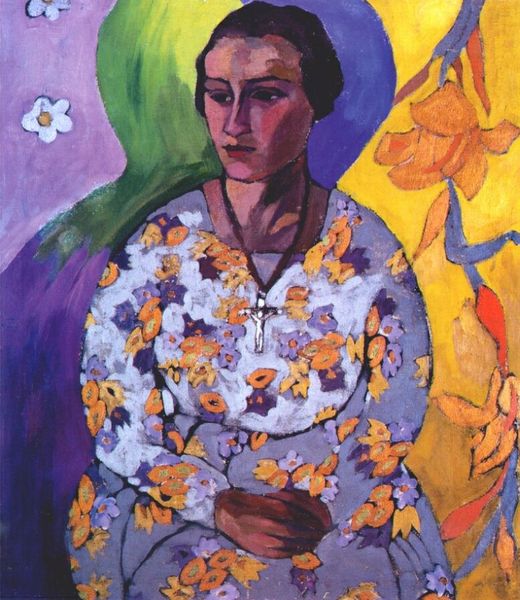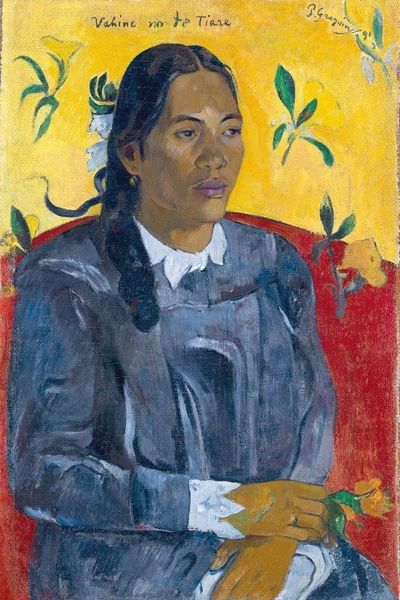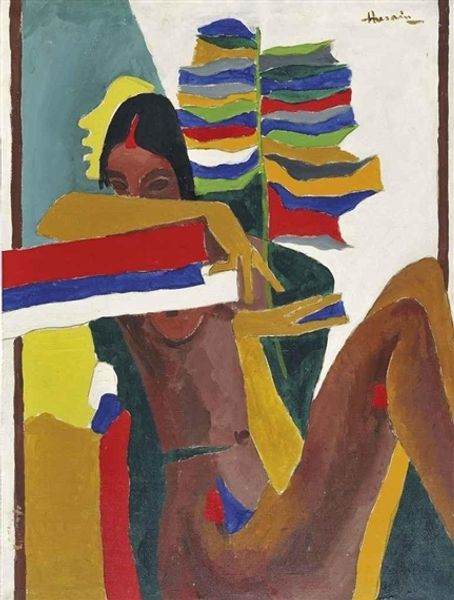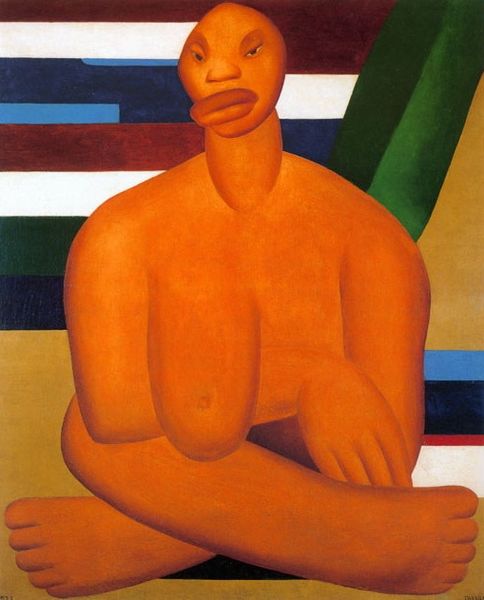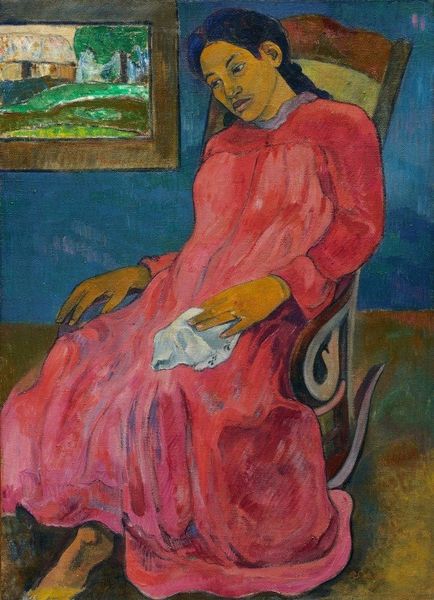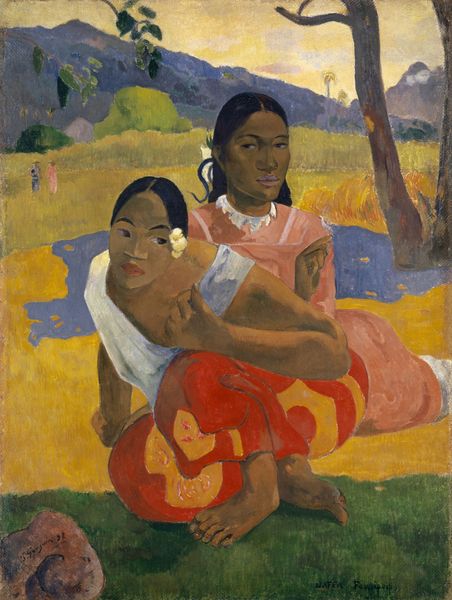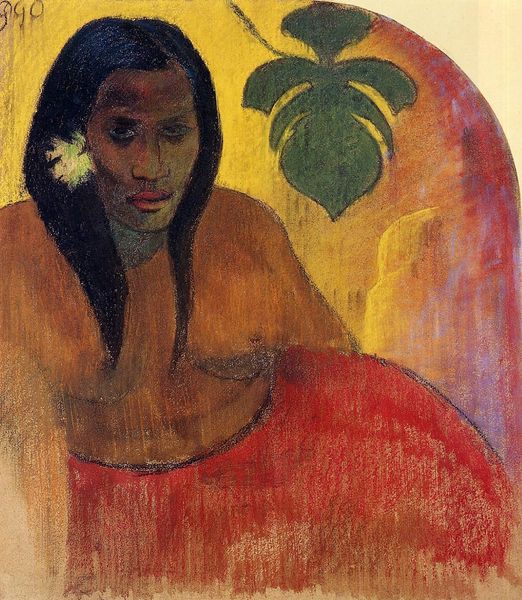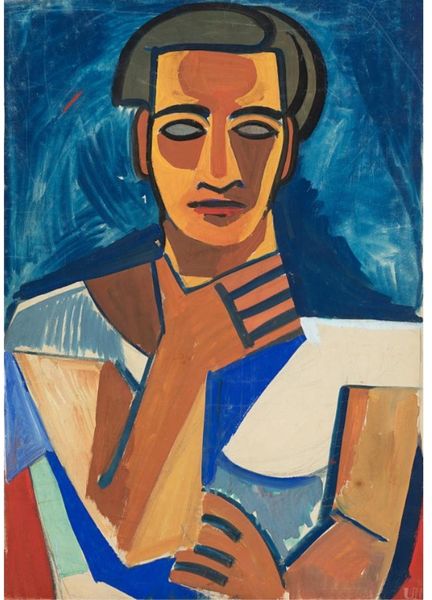
painting, oil-paint
#
portrait
#
figurative
#
painting
#
oil-paint
#
landscape
#
figuration
#
oil painting
#
naive art
#
symbolism
#
post-impressionism
#
nude
#
portrait art
Copyright: Public Domain: Artvee
Editor: Here we have Paul Gauguin’s “Te aa no areois,” painted in 1892. The oil on canvas depicts a seated Tahitian woman against a lush landscape. I’m struck by the dreamlike quality of the scene, and how the woman seems both present and distant. What do you see in this piece? Curator: What I find compelling is the loaded nature of Gauguin's representation. We have to consider the complex politics of his engagement with Polynesian culture. Gauguin’s escape to Tahiti was, in part, fueled by a rejection of Western artistic conventions and a desire for a more "authentic" subject. Yet, was this really escape, or further entrenchment into colonial systems of seeing and commodifying? Editor: So, his representation of the woman is more complicated than it seems? Curator: Precisely. We need to analyze the power dynamics inherent in Gauguin, a European male artist, painting a Tahitian woman. Consider the title. "Te aa no areois," alludes to a now-extinct society with specific practices. Do you know what these practices were? Editor: I’m not familiar with the specifics. Curator: Well, that's key! It referred to a now defunct cult involved with infantide. Gauguin idealizes while glossing over painful, complex, historical circumstances and events. The seemingly innocent portrayal arguably participates in a long history of European fantasies about the "exotic" other, overlooking the disruptions colonialism was actively enacting in Tahitian society. It raises questions about artistic freedom versus ethical responsibility. Editor: It gives a lot to consider regarding representation. Thanks for this! Curator: Indeed! Hopefully, we all have more to think about after looking at the world, now.
Comments
No comments
Be the first to comment and join the conversation on the ultimate creative platform.
